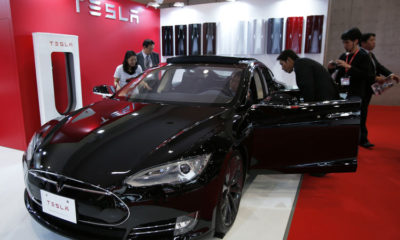The global sales and shipments of Electric Vehicles (EV) are expected to rise by 35 percent in 2022, a US-based research agency and consultancy, Gartner has said.
This comes as a result of the United Nations’ COP26 zero-emission vehicle transition council’s resolution that vehicle manufacturers will commit to selling only non-carbon-emission vehicles by 2040, while governments are to introduce regulations and incentives to help the industry’s growth.
The research director at Gartner, Joseph Davenport noted that nearly 6.4 million EV cars are expected to be sold this year, 1.6 million more than 2021, as the automotive sector prepares for decarbonisation in transportation, increasing EV production activities.
According to him, cars will account for 95 percent of the total EV sales in 2022, while the remaining percent will be split between buses, vans and heavy lorries.
With the restrictive emissions and fuel efficiency regulations, the manufacturers have had no choice but to focus on vehicles that are more environmentally friendly.
German-based vehicle manufacturers such as Volkswagen – whose 12 brands include Audi, Porsche and Skoda – has revealed that it is investing €35 billion ($39bn) into the global shift to EVs. It expressed ambitions to become the world’s largest electric car maker by 2025.
Luxury car brand, Bentley, made the disclosure that it is pumping major investments towards becoming a fully carbon-zero company. Bentley also stated that its first EV will be ready by 2025.
Another German-owned car maker, Daimler, parent company of Mercedes-Benz, last July, had said its brand would be all-electric by the end of the decade, where market conditions allow.
The same goes for luxury Italian marque Lamborghini which also announced in January this year, that it is devising its first fully electric model. The company’s chief executive Stephan Winkelmann also said it plans to introduce the model by the end of the 2020s.
Swedish carmaker Volvo also noted that it would be fully electric by 2030. Jaguar Land Rover made same commitment, saying its luxury brand Jaguar will go all-electric by 2025 as it aims to become a net-zero carbon business by 2039, a year before the COP26 council deadline for cat manufacturers.
The United States’ largest car producer, General Motors, in January last year had also unveiled plans to eliminate petrol and diesel light-duty cars, including SUVs, by 2035.
Electric vehicle maker, Tesla, which is the world’s forerunner in EV production and sales, has projected that its vehicle deliveries would comfortably grow by more than 50% year-over-year in 2022. According to analysts at ARK Invest, Tesla could produce about 5 to10 million vehicles a year by 2025.
China’s directive to manufacturers that EVs make up 40 percent of all sales by 2030, will allow the country account for a 46 percent global EV shipments in 2022. According to Gartner, China is expected to ship about 2.9 million EVs this year, followed by Western Europe (1.9 million) and North America (855,300).
To speed up the transition to EVs, manufacturers will have to address several factors such as lowering the price of EVs, recycling batteries and offering more choice to consumers.
“A major issue that must be addressed is lack of fast-charging availability for home and public charging,” Gartner noted.
“Utility providers will need to increase their investments in smart grid infrastructure to cope with the growing consumption of electricity,” he added.
As the number of EV production rises, Gartner forecasted that the number of global public EV chargers will rise to 2.1 million units in 2022, up from 1.6 million units in 2021.
Despite a global push for the growth of ECs in the automotive industry, the global semiconductor shortage and supply chain disruptions will affect the industry’s efforts to decarbonise, analysts say.
“The continuing shortage of chips will impact the production of EVs in 2022 … while shipments of vans and lorries are currently small, those shipments will grow rapidly as commercial owners see the financial and environmental benefit of electrifying their fleets,” Mr Davenport said.
Already, top EV maker, Tesla had said it is facing supply issues that could affect its business.
“Our own factories have been running below capacity for several quarters as supply chain became the main limiting factor, which is likely to continue through 2022,” the California-based company said.


 Naira4 weeks ago
Naira4 weeks ago
 Billionaire Watch4 weeks ago
Billionaire Watch4 weeks ago


 Naira4 weeks ago
Naira4 weeks ago


 Naira3 weeks ago
Naira3 weeks ago




 Naira3 weeks ago
Naira3 weeks ago




 Naira3 weeks ago
Naira3 weeks ago




 Naira2 weeks ago
Naira2 weeks ago
 Commodities3 weeks ago
Commodities3 weeks ago





















